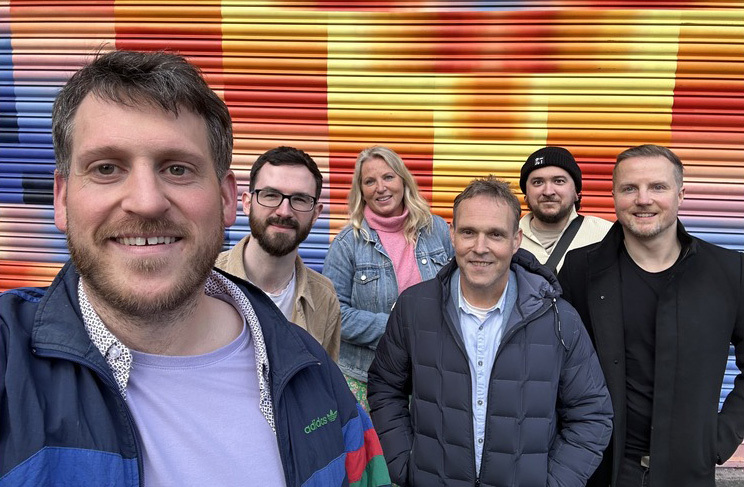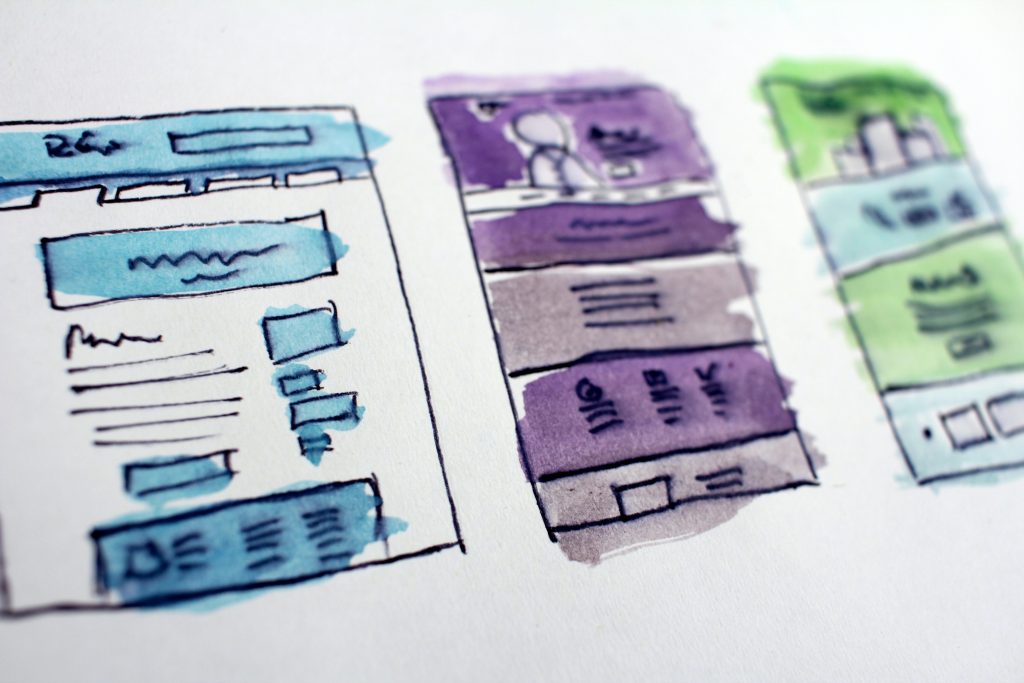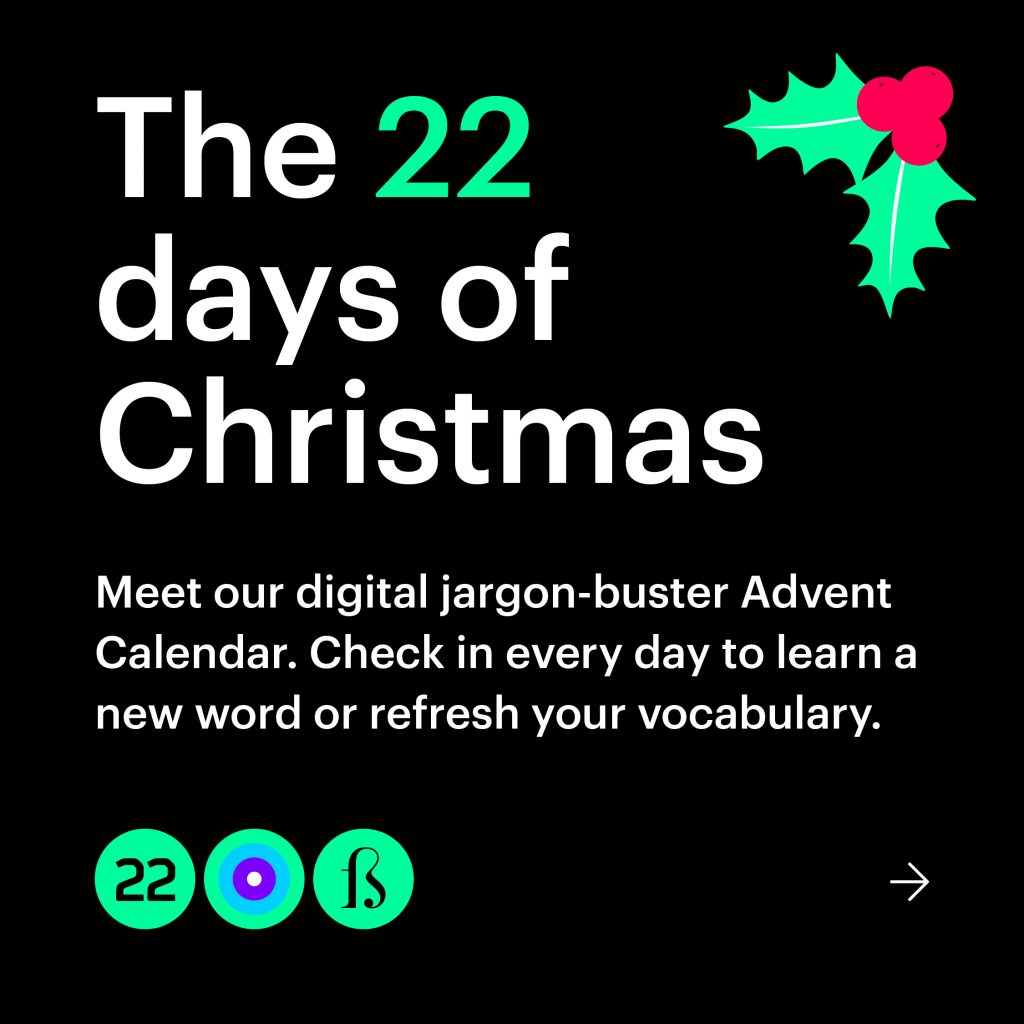This blog is a contribution by our very own Eddy Bennett, Co-Founder and Digital Director here at 22 Group. As a leading branding, marketing and website agency in Manchester we have a passion for emerging technology and a sharp eye on the future of digital marketing. Eddy is leading our exploration into how AI is reshaping businesses across various industries.
In this piece, he shares insights into the current state of AI and how it’s already transforming how companies operate, improve efficiency, and drive growth.
Artificial intelligence (AI) has made impressive strides in recent years, and 2025 marks a significant turning point—the rise of autonomous AI agents. These intelligent systems, capable of acting independently to perform complex tasks, are now revolutionising the way businesses function in a wide range of sectors.
In the past, companies traditionally relied on human expertise and manual processes. Today, AI agents are empowering businesses of all types to streamline operations, enhance customer service, and unlock valuable insights. This article explores the current state of AI, how AI agents operate, and specific ways they are already transforming UK businesses.
The current state of AI in 2025
AI has evolved far beyond simple automation and predictive analytics. Modern AI systems leverage large language models (LLMs) like OpenAI's GPT series, deep learning models, reinforcement learning systems, and multi-agent environments. The advent of AI agents—autonomous entities capable of performing tasks with minimal human intervention—marks one of the most significant developments in AI technology.
What are AI agents?
An AI agent is an autonomous system that interacts with its environment through perception (such as language, images, and data), decision-making, and action. These agents are powered by:
- Natural language processing (NLP): Understanding and generating human-like text.
- Machine learning (ML): Learning patterns from data and improving over time.
- Computer vision: Identifying and interpreting visual information.
- Reinforcement learning: Adapting behaviour based on feedback.
- Multi-agent systems: Coordination between multiple AI agents to solve complex problems.
What makes modern AI agents exceptional is their ability to integrate these technologies and operate with minimal human oversight. For businesses, this means AI can take over routine, time-consuming tasks, delivering faster and more consistent results.
How AI is being used in Manchester businesses today
AI is already being actively deployed by businesses across Manchester and the UK. According to a recent report, 58% of businesses use AI tools at least weekly, with many finding them crucial for operational success.
Here are some key ways AI is transforming businesses today:
1. Automating client communication
AI agents with natural language capabilities can handle initial client interactions, answer questions, and provide information around the clock.
- Example: An AI chatbot integrated into a company’s website can manage customer enquiries, provide product details, and schedule consultations.
- Benefit: Reduces employee workload and improves customer service with faster response times.
2. Market analysis and forecasting
AI agents can analyse real-time market data to deliver insights, predictions, and trends tailored to a business’s needs.
- Example: AI systems can pull data from industry reports and consumer behaviour, helping businesses anticipate trends and adjust their strategies accordingly.
- Benefit: Offers businesses accurate forecasting, improving competitiveness and decision-making.
3. Lead qualification and follow-up
AI agents can score and categorise leads based on engagement patterns, demographics, and past interactions.
- Example: AI systems can monitor website interactions and identify high-potential leads, automatically scheduling follow-ups through email or phone.
- Benefit: Enables businesses to focus on high-value leads, improving conversion rates.
4. Personalised recommendations
AI agents can analyse customer behaviour and preferences to suggest products or services that match their needs.
- Example: An AI-powered recommendation engine can suggest relevant services or products to a user based on their browsing history or past purchases.
- Benefit: Improves customer satisfaction and increases sales potential.
5. Streamlining administrative tasks
AI can help businesses automate administrative processes, such as invoicing, contract creation, and customer feedback analysis.
- Example: An AI agent can draft contracts or analyse customer feedback to identify areas for improvement.
- Benefit: Saves time and reduces human error, allowing staff to focus on more strategic tasks.
6. Predicting market trends
Machine learning models can identify market shifts and predict future demand based on historical data and economic factors.
- Example: AI systems can analyse competitor activity and market dynamics to forecast industry trends and identify opportunities.
- Benefit: Gives businesses the ability to plan ahead and stay competitive in their respective sectors.
How AI agents improve business efficiency
AI agents are particularly effective at boosting operational efficiency:
- Automated communication: Reduces time spent on routine enquiries and customer service tasks.
- Data-driven insights: AI analyses large datasets to uncover trends and customer behaviour patterns.
- Cost savings: Automating administrative functions can significantly reduce overhead costs.
- Scalability: AI allows businesses to scale their operations without increasing headcount.
Why AI for businesses is more than a buzzword
AI isn't just about adopting the latest technology; it’s about giving businesses the tools to perform at a higher level. AI can support human teams, streamline operations, and unlock new growth opportunities. Like other web design agencies in Manchester, we are exploring and adopting AI in this way here at 22 Group, across web design, web development, project management, content creation, copywriting and marketing. By automating routine tasks, AI allows businesses to focus on what they do best—delivering excellent products and services, building customer relationships, and driving innovation.
AI also brings consistency to operations—something that human teams can struggle to deliver under pressure. Whether it's answering customer enquiries out of hours or automating follow-ups, AI ensures that no task falls through the cracks.
The future of AI in UK businesses
As AI technology continues to evolve, businesses can expect even more advanced, predictive capabilities. Some future trends include:
- AI-powered virtual consultations: AI could create custom consultations based on user needs.
- Sentiment analysis: AI could monitor social media and customer feedback to gauge brand sentiment.
- Smart negotiations: AI agents could suggest optimal negotiation strategies based on market analysis.
While AI is transforming businesses, the human element remains essential. AI tools help businesses work smarter, not harder, by enabling staff to focus on higher-level strategic activities.
Challenges and ethical considerations
Like any emerging technology, AI comes with its challenges:
- Data privacy: AI systems must comply with data protection regulations.
- Ethical concerns: AI recommendations must be free from bias and designed to serve the best interests of customers.
- Over-reliance on automation: Maintaining a balance between human expertise and AI is key.
A transparent, thoughtful approach ensures AI enhances business operations while preserving the human touch that remains vital to customer relationships.
Our conclusion
AI agents are no longer futuristic concepts—they are actively reshaping industries across the UK. From automating client communication to predicting market trends, AI is becoming a game-changer for modern businesses. As AI technology continues to evolve, companies that embrace these innovations will have a competitive edge, streamline operations, and deliver better outcomes for their clients.
At 22 Group, we’re excited about how AI can support our clients’ digital transformations. Whether it’s automating administrative tasks, improving customer interactions, or providing data-driven insights, we’re exploring how AI can work hand-in-hand with the brand strategy, website design and digital marketing services we offer. If you're curious about how AI can enhance your business, especially your website and online presence, get in touch with us today. Let’s discuss how we can leverage AI to drive your success.






